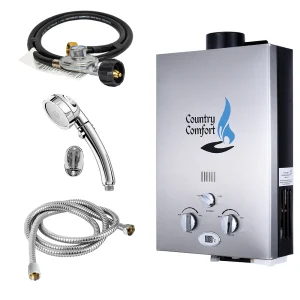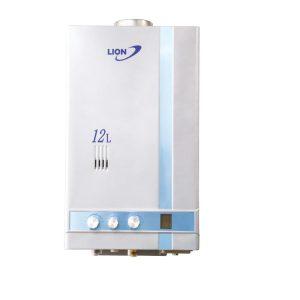In the realm of modern convenience, few appliances have made life as comfortable as the water heater.
From invigorating morning showers to relaxing evening baths, a water heater is an essential part of our daily lives.
In this comprehensive guide, we’ll delve into the workings of water heater, their types, benefits, maintenance, and more. So, let’s dive in!
How Does A Water Heater Work?
A water heater’s primary function is to heat water for domestic use. It typically consists of a tank, a heating element, and a thermostat.
Cold water enters the tank through a dip tube, where it’s then heated by the element. Once the water reaches the desired temperature, the thermostat turns off the heating element.
The Importance Of Adequate Hot Water
Access to hot water is crucial for daily activities, including bathing, cooking, and cleaning. A reliable water heater ensures a consistent supply of hot water, enhancing comfort and hygiene.
Evolution Of Water Heater Technology
Water heating technology has come a long way. From rudimentary wood-fired heaters to modern, energy-efficient options, the evolution has been remarkable. Today, we have an array of choices to fit diverse needs.

Types Of Water Heater
- Traditional water heater for storage
The well-known tanks that store and heat water until it is required are conventional storage water heaters.
They function by continuously heating the water in the tank, guaranteeing there is always hot water available.
Even while these heaters are common and often less expensive up front, they may lead to standby heat loss and increased energy costs.
- On-Demand Tankless Water Heater
Due to its energy efficiency and space-saving design, tankless water heaters, sometimes referred to as on-demand water heaters, have grown in popularity.
Tankless types, in contrast to storage heaters, heat water as it passes through the appliance, preventing standby heat loss.
They are perfect for homes with a range of hot water demands since they save energy and provide hot water continuously.
- heaters with a heat pump
Electricity is used by heat pump water heaters to transfer heat from the air or the earth to the water.
Although they are more energy-efficient than standard electric heaters, they perform best in warmer environments. Due to their increased size, they could also demand an extra installation area.
- Water Heater Powered By The Sun
Solar-powered water heaters use solar collectors to heat water while being ecologically friendly choices that harness the power of the sun.
The efficiency of these systems relies on the temperature and sun exposure, but they may dramatically lower energy costs and carbon footprints. They often have a backup heating source for overcast days or busy times.
Conclusion
In conclusion, water heater have revolutionised the way we experience comfort and convenience in our daily lives.
From quick morning showers to therapeutic hot baths, these appliances have become indispensable.

As technology continues to advance, we can expect even more efficient, eco-friendly, and intelligent water heating solutions to emerge.
So, whether you’re upgrading an old system or installing a new one, remember that the right water heater can truly make a difference.
FAQs Regarding Water Heater
Q: How long does the average water heater last?
A: The lifespan of a water heater varies depending on factors such as type, usage, and maintenance. Conventional heaters may last 8-12 years, while tankless heaters can last up to 20 years.
Q: Can I install a water heater myself?
A: While DIY installation is possible, it’s recommended to have a professional handle the installation to ensure safety and proper functioning.
Q: What is a hybrid water heater?
A: A hybrid water heater combines conventional technology with heat pump technology to provide energy-efficient water heating.
Q: Are smart water heater worth the investment?
A: Smart water heaters offer benefits like remote control and energy monitoring, making them a valuable long-term investment for some households.
Q: How can I reduce my water heating costs?
A: You can reduce costs by setting the thermostat to an optimal temperature, insulating hot water pipes, and considering an energy-efficient water heater model.



